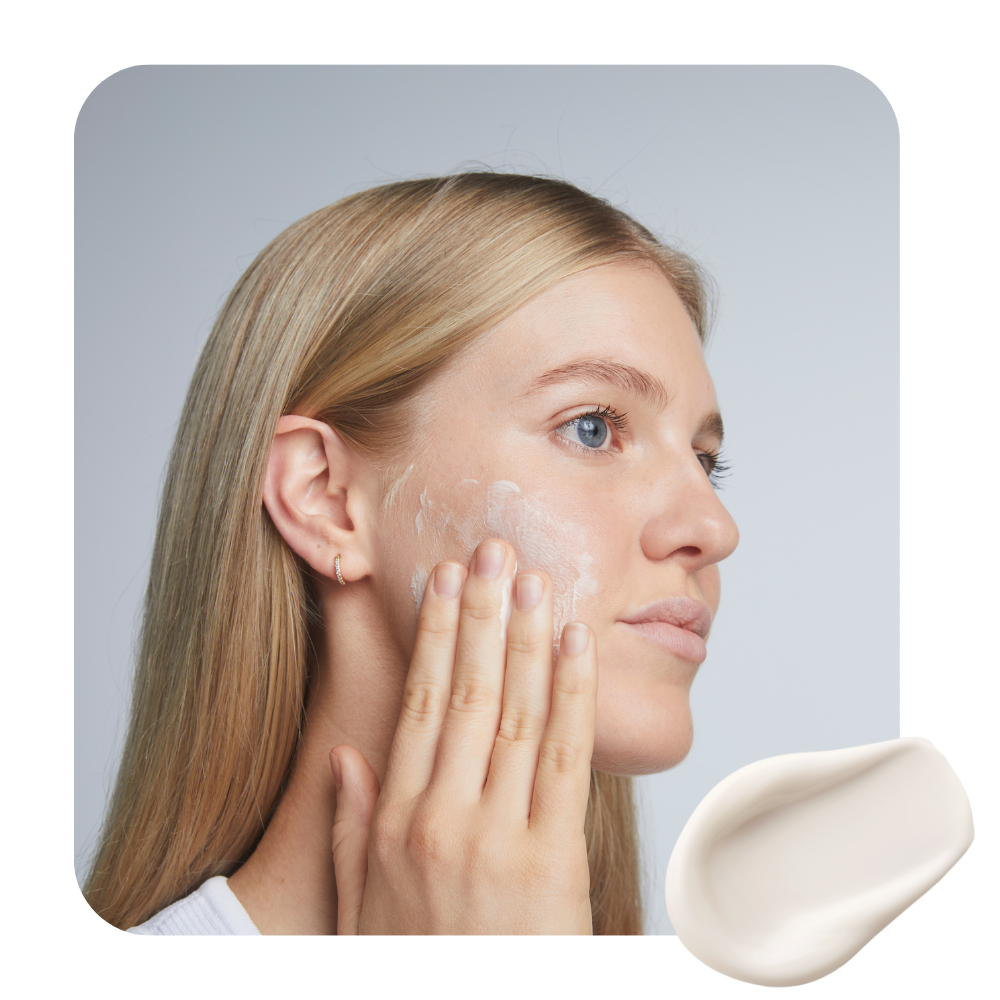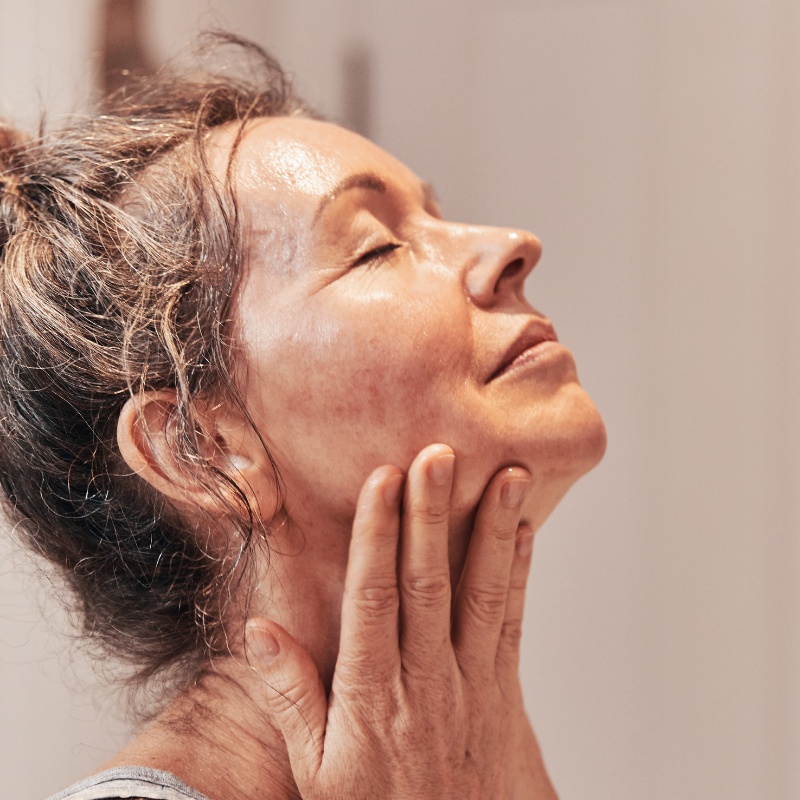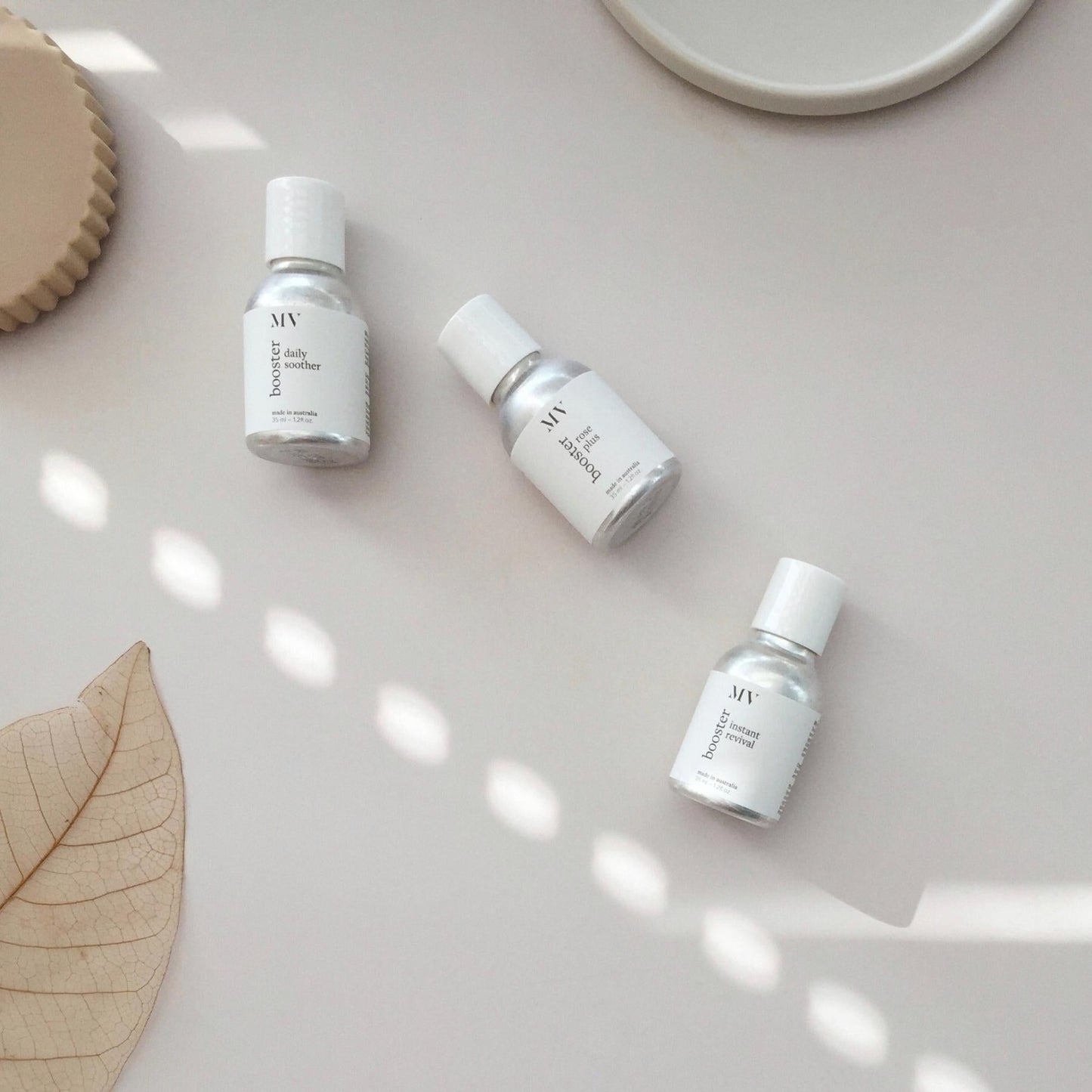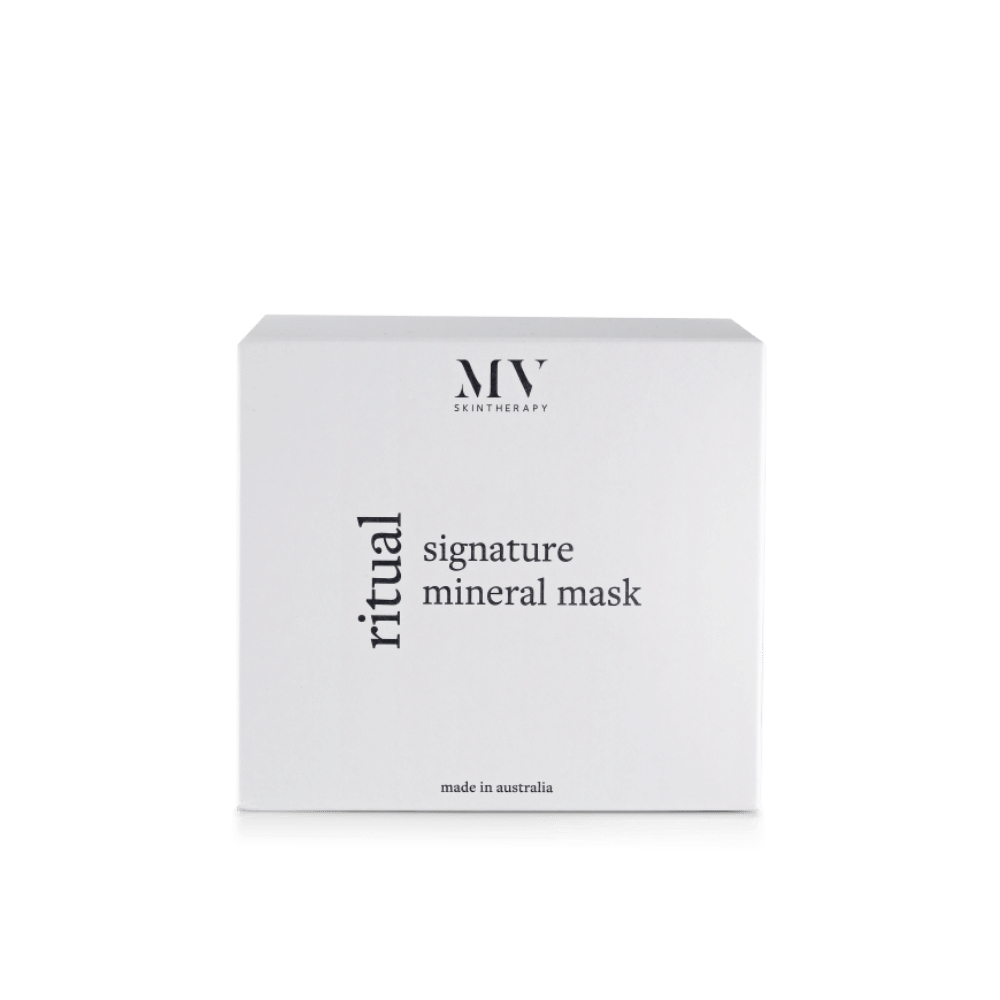Sharon's Top Tips For Sensitive Skin

1. Start Slow & Simple
With any form of sensitivity we always recommend starting out slowly, initially introducing too many products may trigger a reaction. Adopt a ‘less is more’ approach to your skincare regime — clear out your bathroom cabinet and discover the power of our multi-functional and kind formulations.

2. Stop Washing With Water
Do you emerge from the shower with red blotchy, tight-feeling skin? For most people with sensitivity, the answer to this question is yes. Tap-water, full of various minerals can be very drying and irritating on the skin.
Avoid splashing your face with water or fully immersing your face while in the shower and instead, discover the art of MV compress cleansing, to gently and effectively instil nurturing calm on your complexion.

3. Pre Shower Prep
Protect reactive skin from the harsh effects of the shower. Immediately after cleansing at the sink, smooth a few drops of MV Pure Jojoba over your face and neck. This will instantly relax, soothe and provide a protective barrier to the skin, creating a natural buffer against the water. This simple trick works wonders, and a very well-known beauty editor I shared this tip with (over 10 years ago), just told me that she still SWEARS by this method.
Extra shower tip: Tilt your head so that the water does not gush over your face.

4. Learn To Buffer
Start to rely on MV Pure Jojoba as your new best friend. All barrier-impaired complexions, including sensitivity, will find welcome relief in this multi-functional and extremely skin friendly product.
・Layer it underneath any skincare product as your shield or protective buffer.
・Use it as a comprehensive eye treatment product to remove makeup, condition lashes, and hydrate fine lines.
・For days of hyper-reactivity, use Pure Jojoba as a superfine light moisturiser to balance breakouts, and restore calm to flaky or inflamed complexions.
5. Throw Out Foaming Cleansers
All skins - but especially sensitive skins - should avoid foaming cleansers, particularly those containing sodium lauryl/laureth sulphate or glycolic acid (the most potent and often irritating of the hydroxy acids).
Why?
Because these products don’t just remove dirt and makeup, they strip away the skin’s acid mantle, a delicate hydrolipidic film made up of water, sweat, and sebum that sits on the surface of your skin. This invisible shield is your skin’s first line of defence: it helps maintain resilience, keeps bacteria in check, and protects against dehydration.
The surfactants in most foaming cleansers solubilise skin lipids far too aggressively, weakening this natural barrier and disrupting the hydrolipidic film. That’s why people often associate foam with that “tight, squeaky-clean” feeling - but in reality, it’s not a sign of deep cleansing, it’s a sign of barrier damage. Note to self: your cleanser shouldn't leave you feeling desperate for moisturiser.
Over time, repeated stripping leaves the skin compromised: less resilient, more reactive, and more prone to issues like inflammation and pigmentation. It’s no coincidence that the beauty industry is now buzzing about the skin microbiome. Ironically, if we weren’t so quick to strip the skin with high-pH foaming cleansers and frequent exfoliation, we wouldn’t need to have conversations about “restoring” it.
Over-exfoliation is one of the most common causes of sensitivity I see in clinic. Constantly removing not just dead skin cells but healthy ones too creates micro-trauma - leaving the skin raw, vulnerable, and unable to perform its natural protective functions.

6. Consider Your Choice Of SPF
For those with sensitive skin, sunscreen can be a double-edged sword. Sunscreens fall into two main categories: chemical filters, which absorb UV rays, and physical (mineral) filters, such as zinc oxide or titanium dioxide, which reflect light.
Most conventional chemical sunscreens rely on ingredients like oxybenzone, avobenzone, octisalate, octocrylene, homosalate, and octinoxate. These are well-documented irritants, and it’s not just the filters themselves that can cause problems. The additional agents used to create that invisible, weightless feel are also common triggers — particularly for those with an impaired skin barrier. To complicate things further, TGA-approved sunscreens aren’t required to list all of their excipients, which means consumers often have no idea what else is in the formula they’re applying to already sensitised skin.
This is why, in my clinic, I recommend clients with reactive skin explore zinc-based sunscreens. In my experience, skin is far less likely to flare up when protected with a physical light reflector rather than a chemical absorber.
The other important consideration is that highly sensitive or barrier-impaired skin should be treated as “damaged” skin — and damaged skin is both more vulnerable to UV light and more likely to react to the layering of potential irritants. That’s why the first line of defence should always be the obvious (but often forgotten) measures: avoid the harsh midday sun, seek shade, and wear a wide-brimmed hat.
On days spent largely indoors, away from direct sunlight, there may be opportunities to reconsider whether SPF is truly essential — particularly if you’re someone who struggles to find a formula that doesn’t cause flare-ups. Many rosacea clients, for example, find daily sunscreen a challenge, as even “sensitive” formulas can be triggering. In these cases, being mindful about when you do need SPF and when you can safely give your skin a break can help reduce its overall irritant load while it heals.
When you do need SPF, make it a dedicated zinc-based sunscreen (not just a moisturiser with added SPF) and always apply it after your moisturiser, never before.
This shift in approach is far kinder to sensitive skin — and, in my experience, far more sustainable in the long run.

7. Stop Wearing Moisturiser To Bed
The MV philosophy skips moisturiser before bed. Diurnal rhythms mean that skin undergoes regeneration, cell turnover, and repair during the evening. Moisturiser sits atop the skin, as a protective barrier, which would hinder this vital process. In the evenings, give your skin a rest and instead treat it to a few drops of an antioxidant rich plant oil that supports the microbiome and protects the skin barrier.
8. Listen To Your Skin
Skin health is holistic. The health and happiness of your largest organ is dynamic, and will be impacted by factors such as lifestyle, diet, stress, emotions, environment - as well as topical irritants.







